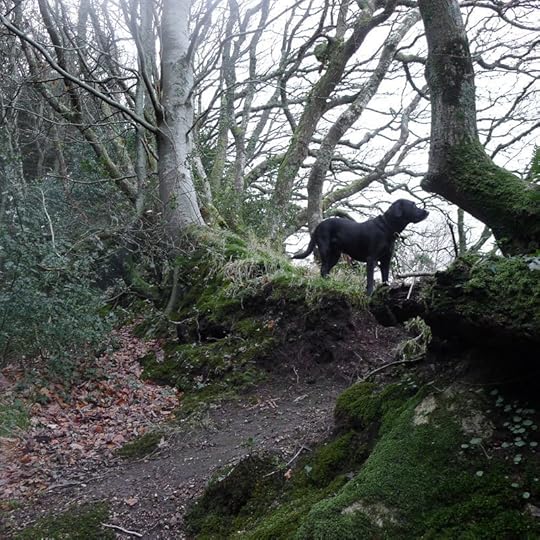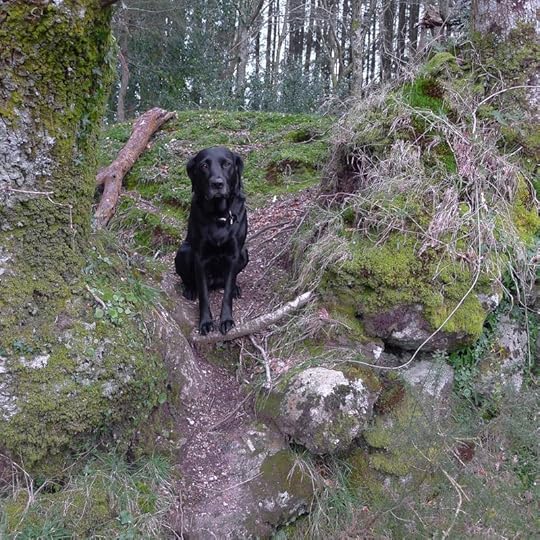On beginnings
"The advice I like to give young artists," says painter Chuck Close, "or really anybody who'll listen to me, is not to wait around for inspiration. Inspiration is for amateurs; the rest of us just show up and get to work. If you wait around for the clouds to part and a bolt of lightning to strike you in the brain, you are not going to make an awful lot of work. All the best ideas come out of the process; they come out of the work itself. Things occur to you. If you're sitting around trying to dream up a great art idea, you can sit there a long time before anything happens. But if you just get to work, something will occur to you and something else will occur to you and something else that you reject will push you in another direction. Inspiration is absolutely unnecessary and somehow deceptive. You feel like you need this great idea before you can get down to work, and I find that's almost never the case.”
Likewise, novelist Ann Patchett reminds us that in order to write we need to cross the line between thinking about creating and getting down to work. "The journey from the head to the hand is perilous and lined with
bodies," she warns. "It is the road on which nearly everyone who wants to write—and
many of the people who do write—get lost.”

Sometimes we put off the moment of actually beginning, getting stuck
in the dreaming and planning stage instead -- afraid to start, afraid to
commit, afraid to go where the creative process wants to take us. Yet
despite fear and doubt, wrote Rollo May (in The Courage to Create), we must make the leap, plunge in, begin. “The relationship between commitment and doubt is by no means an
antagonistic one," he points out. "Commitment is healthiest when it is not without doubt,
but in spite of doubt.”
And as YA writer Tehereh Mafi says, rather wisely, "The words get easier the moment you stop fearing them."
Beginnings are rarely tidy and controlled...nor are they particularly meant to be.
"For me," says novelist Ramona Ausubel, "the first draft is really just a big mud-rolling, dust-kicking,
mess-making time in which my only job is to find the story’s heartbeat.
I allow myself to invent characters without warning, drop them if they
prove to be uninteresting, change the setting in the middle, experiment
with point of view, etc. I figure that the body will grow up around the
heart, that it’s always possible to bring all the various elements up
and down, sculpt and polish, as long as I’ve got something that matters
to me. The second draft (and the 3rd through 20th, Lord help me)
involves getting out the tool belt and thinking like a carpenter. But
the first draft is all dirt and water and seeds and, hopefully, a little
magic. Of course, this method means that my first draft is almost
unreadable. Maybe someday I’ll invent a way of making a slightly
cleaner mess, but until then, I try to enjoy the muck." *
British novelist Zadie Smith tells young writers: "Don't romanticise your 'vocation.' You can either write good sentences
or you can't. There is no 'writer's lifestyle.' All that matters is what
you leave on the page."
So get it down, those messy first drafts and rough initial sketches, get it down, don't judge, don't polish, don't freeze, don't get stuck endlessly rewriting the first clutch of pages over and over, never progressing any further (a habit I'm all too prone to myself) -- you can edit, fix, fill out, perfect, and pretty it all up later.
"Don't get it right," said the great James Thurber, "just get it written."

Although we've been speaking specifically of painting and writing, the
crucial moment of "beginning" is important in all forms of creativity -- and each of us is an artist, a "maker," is
some aspect of our lives. We make homes and gardens, classrooms and sanctuaries, families and communities; we create meals and letters and blogs and adventures lodged in our children's memories; and we all have things we want and plan to do, someday...and know we ought to just begin.
"Until one is committed," said the German Romantic poet Johann von Goethe, "there is hesitancy, the chance to draw back, always ineffectiveness. Concerning all acts of initiative and creation, there is one
elementary truth that ignorance of which kills countless ideas and
splendid plans: that the moment one definitely commits oneself, then
Providence moves too. All sorts of things occur to help one that would
never otherwise have occurred. A whole stream of events issues from the
decision, raising in one's favor all manner of unforeseen incidents and
meetings and material assistance, which no man could have dreamed would
have come his way. Whatever you can do, or dream you can do, begin it.
Boldness has genius, power, and magic in it. Begin it now.”
* The Ausubel quote comes from "Novelists on First Drafts," which I recommend reading in full.
 newest »
newest »
Terri Windling's Blog
- Terri Windling's profile
- 707 followers









Transferring the ideas to paper is a difficult moment for me, because I need to do a certain amount of analysis to work out if the idea can make the leap to a viable proposition. I need to sift out the weak from the strong.
Starting with a good character is more likely to drive the story - if you like the person, you'll always be interested in discovering what happens to them and as such, maintain the inspiration.